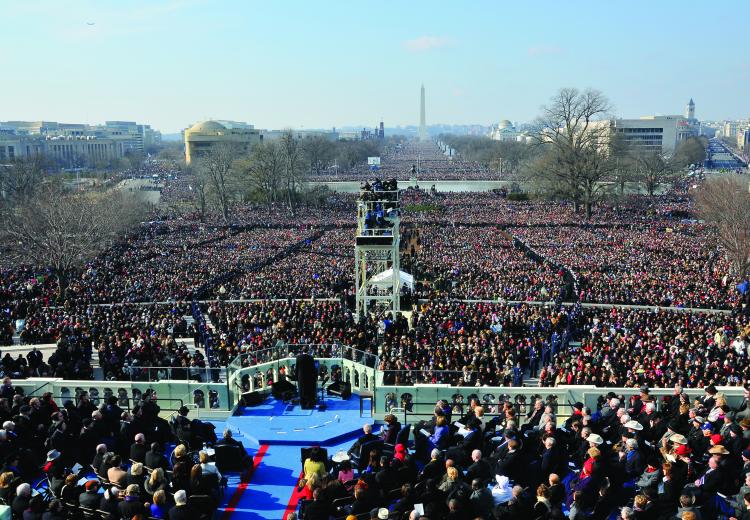Media Resource
Four More Years: Presidential Inaugurations

Photo caption
2013 Presidential Inauguration, West Steps of the U.S. Capitol.
This episode of BackStory explores the history of presidential inaugurations and pays particular attention to the historical significance of specific transitions during contentious times in U.S. history.
Audio file
A full transcript of the episode is available at the BackStory website.
Washington's Diamond Shoes (00:00-10:30)
Dude, Where's My Coat (10:31-12:43)
Greatest Address? (12:44-18:48)
Inaugurations of a Rebel President (18:49-26:37)
Inaugural Technology (26:38-31:16)
A Call for Wild Inaugurals (31:17-36:17)
Hayes vs. Tilden (36:18-48:28)
About BackStory
Related on EDSITEment
Lesson Plan
Presidential Inaugurations: I Do Solemnly Swear
Student Activity
Lincoln on the American Union: A Word Fitly Spoken
Teacher's Guide
